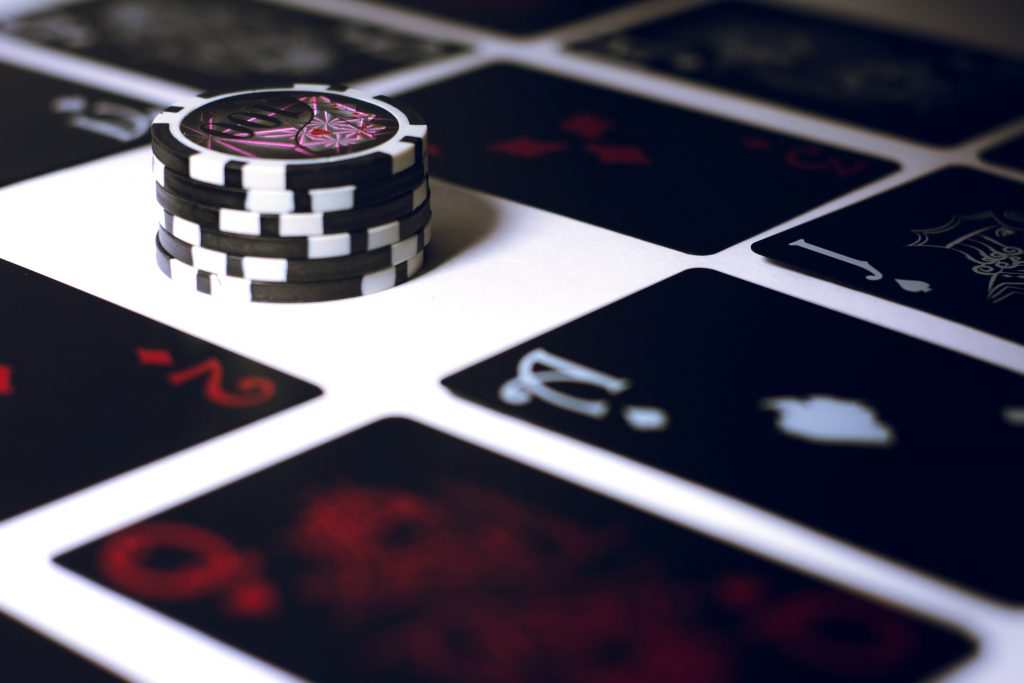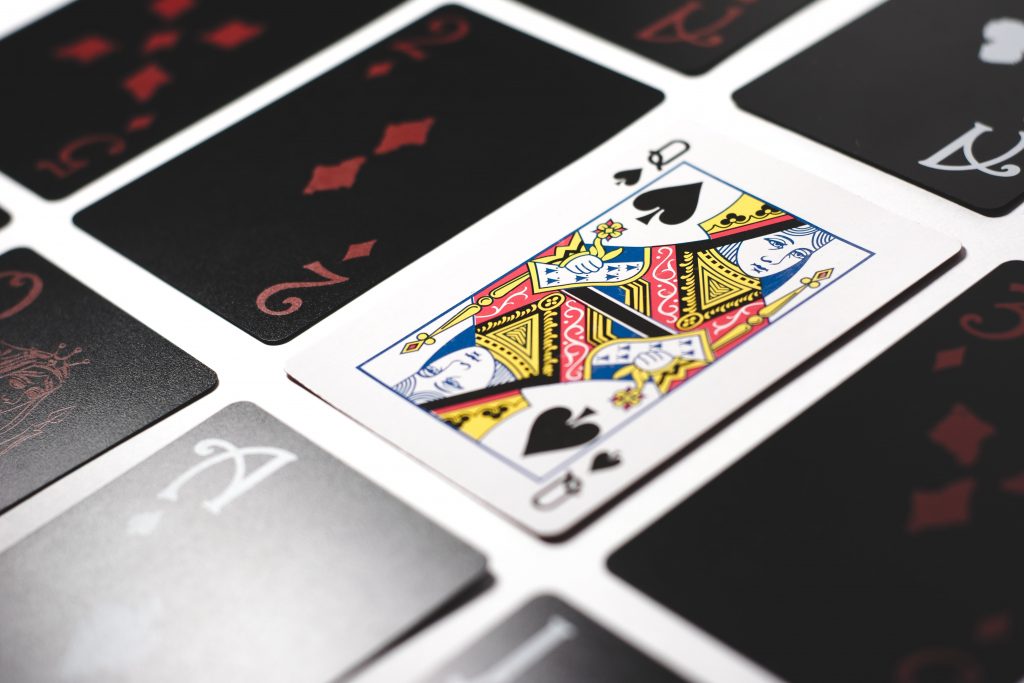Victoria Coren Mitchell, the first person to win the European Poker Tour twice, once wrote: “It’s strange that poker players are so superstitious. They spend half their lives patiently explaining that poker is not ‘gambling’, like roulette or the lottery: it is a game of skill, judgment, insight and wisdom. But then they spend the other half of their lives trying to balance a lucky rabbit’s foot on the chips “.
While today’s modern crusher will tell you not to be superstitious in the least, dig a little deeper and you may find some peculiar behaviors. Here are the most common poker superstitions still present at the tables.
Card protectors
Card protectors serve a practical purpose. Placed on top of your hole cards, they prevent the dealer from accidentally throwing your hand away if he thinks you folded.
So far, so good. In this case, a simple chip or coin is fine. But if practicality were the only reason then why do players, both recreational and professional, bring such elaborate card protectors to the tables?
In any casino you will find many players using card protectors with personal meaning: traditional symbols of luck such as horseshoe or clover, national flags or stickers of their favorite Star Wars character.
Costa Rican pro Humberto Brenes, a two-time WSOP bracelet winner and $ 6.1 million gross in live tournaments, was known for using a shark-shaped card protector – an obvious statement to other players that he was ready to devour their chips.
Johnny Chan had an unusual lucky charm: he often brought a life-size orange to the table. Chan introduced his characteristic citrus-lucky charm in the 80s and 90s attracting further attention, also because the orange gave a touch of freshness in the smoky atmosphere of the casinos.
A fossil collector, Greg Raymer, carried rare and interesting specimens to cover his papers. Fossils often became topics of discussion and earned Raymer the nickname “Fossilman”.
Card protectors, therefore, cross the line between practical and accessory, and add a little fun to the superstition.
Lucky and unlucky hands

A general problem experienced by amateur players who have not yet delved into the basics of poker strategy and a common topic of conversation in home games: what is your favorite hand?
The most obvious answer is “the pair of aces,” if we are talking about starting hands in Texas Hold ’em. Why should it be otherwise?
For some people, however, it is not. Sometimes players may have a favorite hand that is not exactly–a top hand! Yes, we all know that connectors such as 9♥ 7♥ are nice and very playable with deep stacks. But can they really be the favorite hand?
A whole range of poker superstitions opens up here. I have heard some friends tell me that they would rather have pair of 9s than pair of aces, and then justify the reasoning with “I always lose when I have A-A.”
Another common poker superstition is that it is not good luck to win the first hand of a cash game or poker tournament. Some players even fold a monster hand on the first hand just to feel safe from the evil eye.
Lucky Clothes
We have seen some famous examples of personalized clothing over the years. John Hesp in his now famous (and rather ridiculous) suit before winning a fourth-place finish at the 2017 WSOP Main Event, for example. Or Sebastian Sorensson who received the nickname scarf guy (“scarf guy”) after wearing a Miami Dolphins scarf during his 2017 PokerStars Championship Main Event in Barcelona (a tournament he won for €987,000).
Style aside, there may be a practical reason why experienced poker players opt for certain items of clothing. Sunglasses, for example, can help hide physical cues and prevent “soul reading” by other players. The issue is so controversial that some casinos have banned sunglasses during play. Hoodies can play a similar role of concealment, or at least help players feel more comfortable and less exposed.
However, when it comes to poker and luck, clothing items and their colors can also have a superstitious function. In the Far East, for example, red symbolizes happiness and good luck.
In poker it also happens that a player remains attached to a certain piece of clothing that he wore when he won a rich tournament. That’s when that shirt, pants or other becomes a “must” to wear before every important date at the gaming table.
Occasionally it happens that some poker players take this superstition to the extreme, choosing to wear the same (unwashed) clothes for days on end after hitting a hot run at the casino. Please do not do this.
Putting the chips in a particular order
Players may have a personal way of stacking their chips. For example, a player may choose to stack them by color or in stacks of 10 chips each.
There is nothing wrong with this, in fact, as long as it does not interrupt others’ play. Done well, it can actually make it easier for everyone to read the stack size.
However, casinos have their own rules and etiquette on how to stack chips. If you break these rules, you can expect to be told to stack your chips more appropriately.
You should not, for example, hide higher value chips behind lower value chips. Also, you should not shuffle your chips in a way that makes it difficult for other players, or the dealer, to know how much you have in your hand.
As long as your poker superstitions do not turn into unfair actions, you are fine.
Lucky players and lucky chips
You might think that poker players, at least the strong ones who are trained to use logic and make purposeful decisions, are not so superstitious. However, even experienced players are susceptible to magical thinking, as in the case of the lucky chips myth.
Here’s what happens sometimes. At some point in the game, one or more players at the table are targeted as the “lucky” ones. Maybe they are playing well, or they actually have a lot of luck. More often it’s both. Either way, they are doing well.
Suddenly the logic jumps. Other players at the table begin to believe that taking chips from a lucky opponent is a good omen. If they win chips from the “lucky player,” they will do everything they can to hold on to them, even if it means keeping them separate from the rest of their stack.
Of the superstitions on the list, this lucky chips myth tends to be the most damaging to strategy, causing players to make decisions based on which other players they think are lucky and do everything they can to protect the chips they capture. This is just plain stupid.
The superstition of lucky chips can also take a simpler form. Players can use a few rare ones as a kind of good luck charm.
Superstitions about the shuffle and dealer faults

Anyone who has played live can understand what we are talking about. Players who believe in luck in poker (not variance, but pure luck), tend to think that the way the cards are shuffled translates directly into their “good” or “bad” set of cards.
And who shuffles the cards? The dealer of course. You may have heard players applaud or blame a particular dealer, raise and lower shares based on whether the dealer “dealt them good cards.”
Of course, the shuffling of a deck is random and, like many events in our complex existence, is not designed to make life easy or difficult. All players are subject to the same range of outcomes and variance, regardless of how the deck is shuffled.
In online poker, this extends to blaming random number generators for being “rigged,” despite the fact that these algorithms have no way of favoring particular players and are, in fact, much more “random” than a human shuffle.
Poker superstitions about card shuffling can be detrimental to strategy, causing players to change their betting habits depending on whether the deck or the dealer is favorable. So be careful!
Why are poker players superstitious?
From a psychological perspective, superstition refers to the desire to have greater control or certainty over events and circumstances.
In the case of poker, which just like life involves a mixture of incomplete information and unknown outcomes, it actually makes a lot of sense why players use superstition. Yes, they may be trained to think logically, but they also deal with a lot of uncertainty.
Studies have shown that positive superstitions such as lucky charms can actually reduce anxiety and lead to clearer decision making. Poker superstitions might serve a mentally useful purpose and not necessarily harmful.
However, if superstitions are left unchecked they can cause obsessive behavior and anxiety. Imagine the poker player who showed up at a live event only to realize that he forgot his lucky underwear in his room. Some poker superstitions, as in the case of lucky and unlucky hands, also have a direct impact on decision making and thus reduce the potential for strategic improvement.The most common superstitions of poker

